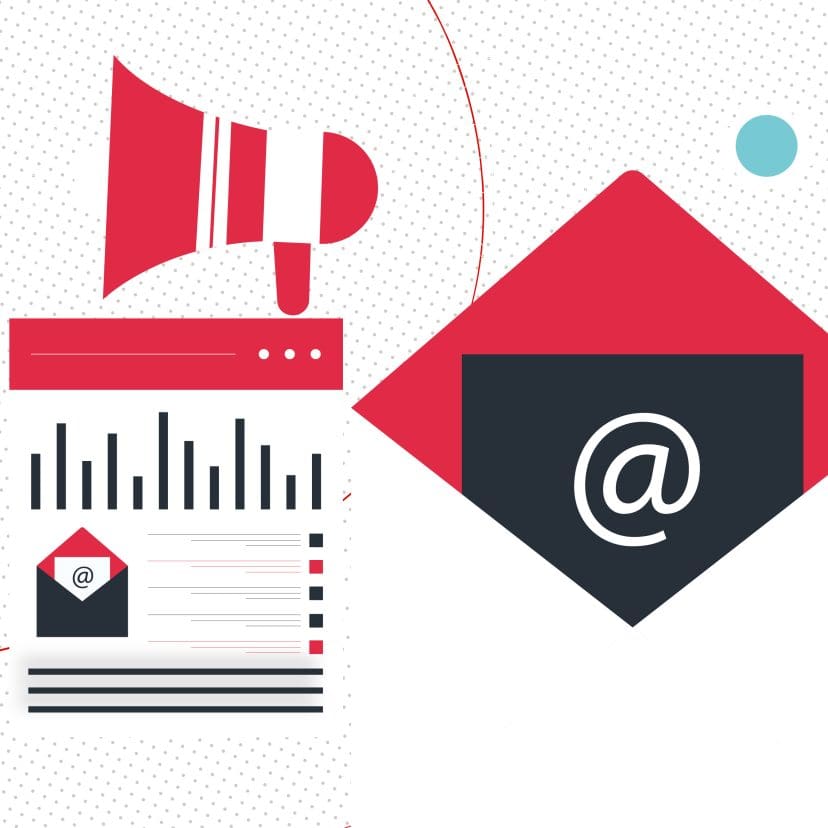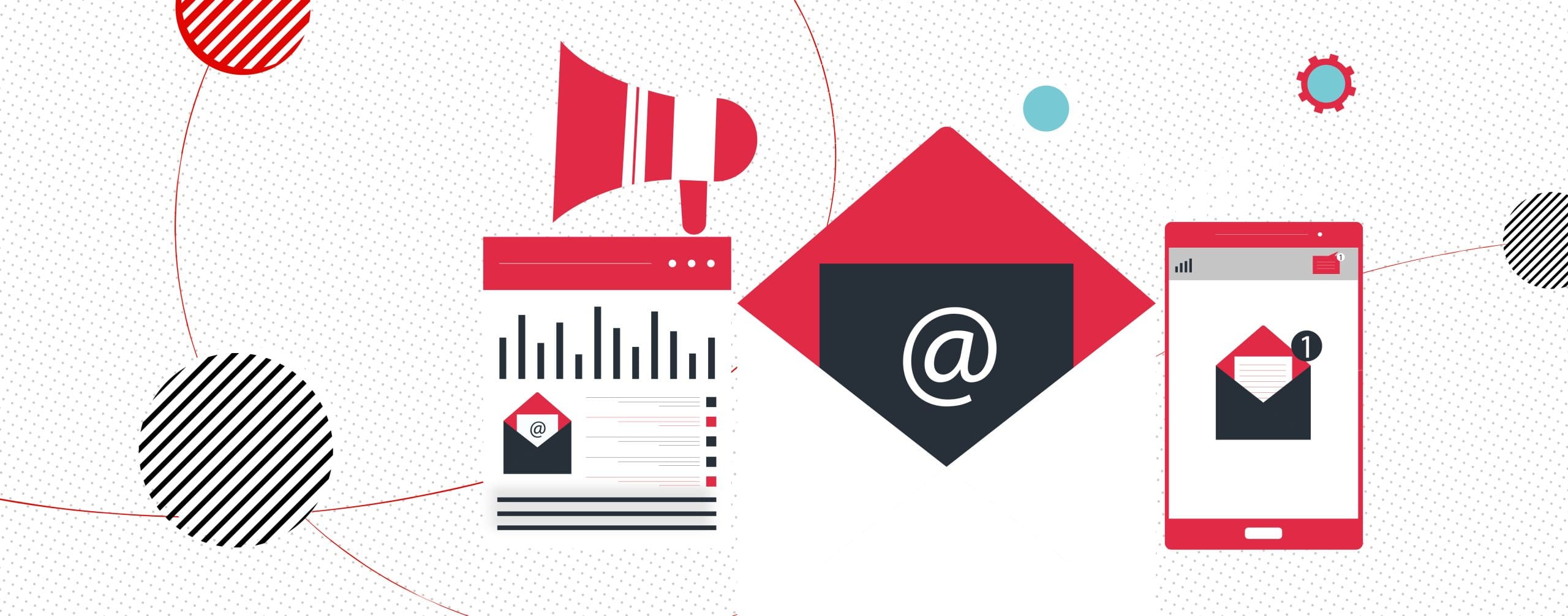
Leverage ERP Data for Targeted B2B Social Media Campaigns
Laura
Buzin

Social media has become an essential part of B2B marketing. It offers a powerful way to connect with decision-makers, nurture leads, and build brand authority.
However, achieving meaningful business income from social media marketing, like increased sales or qualified leads, takes more than just posting eye-catching graphics and clever copy.
To drive real, tangible results, your social media efforts must be grounded in data; specifically, insights into who your audience is and what matters most to them. This enables you to create timely and relevant social media content that resonates and inspires action.
If your business uses an ERP system, then you already have access to a wealth of valuable information that you can harness to create more relevant and effective social media campaigns.
Here’s what you need to know about leveraging ERP data to optimize your social media marketing strategy.
ERP Data for Targeted Social Media Campaigns: An Overview
ERP systems hold a centralized record of your business’s most valuable operational and customer data. This includes data such as:
- Customer demographics and firmographics: Details like company size, industry, revenue, geographic location, and key contacts.
- Purchase history: Records of what each customer has bought, how frequently they purchase, average order values, and their most recent transactions.
- Interaction history: A log of all customer interactions or touchpoints, including sales calls, support tickets, website visits, and email exchanges.
- Product data: Information on product categories, specifications, usage patterns, and current inventory levels.
- Sales cycle stage: Visibility into where a lead or customer currently sits in your sales pipeline (e.g., whether they are a new lead, a qualified prospect, in negotiation, or an existing customer).
- Customer segments: Classification of customers by characteristics such as revenue potential, lifecycle stage, industry vertical, or loyalty status.
Tapping into this data gives the context you need to craft highly effective social media campaigns that speak to the right people, with the right message, at the right time.
Benefits of ERP-Driven Social Media Marketing
Integrating your ERP platform with social media marketing unlocks a host of strategic advantages, including the following:
Data-Driven Campaigns
ERP systems gather important data about your customers, products, and sales all in one place. This information, when applied to your marketing strategy, takes the guesswork out of campaign planning.
Instead of relying on generic buyer personas or broad assumptions, your marketing team can use ERP insights to craft messages based on real customer behavior and preferences. This results in messaging that hits the mark, boosting your ROI and reducing wasted ad spend.
Hyper-Personalization at Scale
Today’s B2B buyers expect you to understand their business challenges and speak to their unique needs. In fact, research shows that 71% of B2B customers expect personalized content when engaging with a company.
ERP systems make it possible to deliver on that expectation. Specifically, ERP data enables you to divide your vast customer base into small, specific groups or segments.
For example, you can group customers by their industry, how many times they’ve bought from you, or where they are in the buying process. You can then send highly tailored messages to each of these narrowly defined groups, creating a personalized experience that drives engagement, encourages conversion, or promotes loyalty.
According to McKinsey, personalization can lower customer acquisition costs by as much as 50%, raise revenues by 5-15%, and boost marketing ROI by 10-30%.
Increased Efficiency Through Automation
ERP-driven social media marketing also allows you to automate marketing actions. For instance, a new customer record in ERP can automatically trigger a welcoming ad campaign on social media, or a specific product purchase could lead to an automated cross-sell campaign without any need for manual input.
Marketing automation reduces manual effort (saving time and labor costs), speeds up campaign execution, and frees up your marketing team to focus on strategy and creativity.
More Accurate Tracking of Social Media Marketing ROI
A persistent challenge in B2B marketing is connecting top-of-funnel metrics (such as likes, shares, and impressions) to bottom-line results like revenue or customer retention. In fact, up to 85% of B2B marketers struggle to connect marketing performance to business outcomes.
This is another area where ERP-driven social media marketing can assist. It allows you to link social media activities like clicks or impressions on a particular campaign with sales and revenue outcomes in your ERP.
You can measure exactly which campaigns bring in money (and by how much) and which don’t. This kind of accurate ROI tracking enables smarter budget allocation and continuous campaign optimization.
Faster, More Accurate Responses to Customers
ERP-social media integration provides real-time customer context to your marketing teams. If a customer posts a question or comments under a social media post, agents can immediately access a complete profile of the customer, including their past purchases, support tickets, communication history, and any open issues.
Such real-time access to customer details allows marketing teams to provide personalized replies, address questions with targeted information, and tailor feedback that resonates with each prospect’s specific needs and status.
Quick, informed responses keep prospects engaged, build trust, and encourage further interaction, improving overall campaign effectiveness.
Real-time Feedback and Adaptability
The information in your ERP continuously updates in real time to reflect current business conditions. This provides a continuous stream of feedback that allows for constant adjustment and optimization of your social media campaigns.
Sales fluctuations, inventory changes, and other similar data types, all tracked within your ERP, can instantly inform and adjust live social media campaigns. For instance, if your ERP shows a demand spike for a particular product, you can immediately create a targeted campaign to promote that product while interest is high.
Best Practices for Leveraging Your ERP for B2B Social Media Campaigns
Integrating ERP data into your social media marketing strategy can unlock powerful results, as we’ve seen. But success depends on how thoughtfully you implement this approach.
To maximize the value of ERP-driven social media marketing and avoid common pitfalls, follow these essential best practices:
Start with Clear Objectives
Before integrating your ERP with social media tools, define the business outcomes you’re trying to achieve. Are you aiming to generate new leads? Improve client retention? Boost upsells for a specific product line?
Clear goals help determine which data points to prioritize and shape the messaging and targeting of your campaigns. Without defined objectives, you risk scattered efforts that fail to achieve any meaningful outcomes.
Ensure Data Accuracy and Cleanliness
ERP data is only useful if it’s accurate and reliable. Inaccurate, outdated, or incomplete data can mislead your marketing campaigns and cause wasted resources. To maintain data integrity, implement strict data entry protocols and schedule regular audits and cleansing of your ERP database.
Maintain Compliance and Data Privacy
When transferring or using ERP data on social media platforms, make sure you fully understand and comply with relevant data privacy regulations like GDPR, CCPA, and others relevant to your region or industry.
Implement strong security measures (like encryption and access controls), gain necessary consent, and be transparent about your data practices. These actions protect your brand from legal risks and also help build trust with customers and prospects.
Invest in Training and Skill Development
Provide your marketing and sales teams with ongoing training to build their skills in using ERP systems and social media tools. Well-trained teams can better leverage ERP data, adapt quickly, and make informed decisions that boost campaign effectiveness and ROI.
Continuously Monitor and Update Campaigns
Social media trends and customer behaviors change fast. Therefore, don’t simply set your ERP-driven social media campaigns and forget them.
Regularly review your ERP data for new insights and monitor how your social media campaigns are performing against your defined objectives. Use these insights to tweak your strategies and keep your messaging relevant and effective.
Redefine Your B2B Social Media Marketing With ERP-Driven Efforts
Your ERP system is more than just a back-office tool for managing business operations. As we’ve seen, it’s also a powerful source of real-time customer, product, and transactional data that, when integrated with social media marketing tools, can help you create highly targeted, personalized, and effective campaigns that drive engagement and sales.
k-ecommerce offers a comprehensive B2B ecommerce solution that integrates seamlessly with your existing ERP system, including popular options like Microsoft Dynamics and Acumatica. Our platform empowers you to effortlessly leverage ERP insights to deliver relevant, efficient, and results-driven marketing campaigns on social media and even offline platforms.
Schedule a personalized demo of k-ecommerce today and discover how we can help you create targeted, high-impact campaigns that move your business forward.


